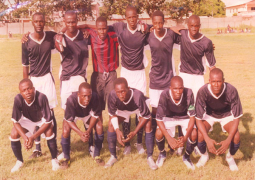However, the truth is that; there are still challenges facing the fight against FGM in The Gambia and it is entirely the duty of all Gambians with support from the international community to rise up to these challenges and overcome them.
Let us again examine what FGM is: Female Genital Mutilation is defined as “any procedure which involves the partial or complete removal of the external female genital organs for non-medical reasons” (WHO, 2009).The practice is said to have existed for more than 2000 years and is performed on girls of only a few days old, up to just before marriage. There are four types of FGM:
Type I: Clitoridectomy – clitoris or clitoral hood is cut off.
Type II: Excision – clitoris and inner lips are removed.
Type III: Infibulation - clitoris, inner and outer lips are removed. The remaining skin is stitched or sealed leaving a small opening.
Type IV: Other Variations – other harmful procedures include piercing, pricking, stretching, scraping, burning, cutting and introducing corrosives/herbs.
FGM is highly traumatic and can have detrimental consequences on the physical and emotional health and development of girls and women and some cases lead to death. Some of the consequences of FGM are: excessive bleeding, infection, infertility, difficulty with childbirth (obstetric fistula), cysts, urinary problems (incontinence) and in some cases death. It can also result in psychological consequences such as; shock both during and after the procedure, flashbacks, fear of sexual intercourse, Post-Traumatic Stress Disorder (PTSD) and many other effects.
On how The Gambia can overcome the challenges of FGM, I recently attended a multi-professional conference marking the International Day of Zero Tolerance for FGM at the London College of Obstetricians and Gynaecologists and one of the approaches used in the UK to fight FGM is:
CaPP: Care, Protect and Prevent:
I believe this approach can be helpful in the fight to end FGM in The Gambia.
Furthermore, educating Gambian citizens and residents on the dangers of FGM is a crucial formula for success. I would recommend a few ways this can be done:
-The Gambia government should create an FGM Unit that will spearhead the fight to end FGM in partnership with the private sector organisations and civil society.
-FGM training should be embedded in all professional training (police, medical personnel and teachers) by supporting and working in partnership with health education providers i.e. the Gambia medical school, school of nursing and midwifery, public health school and all other private medical educational institutions (the students and staff should be trained on FGM). The prominent FGM campaign groups can be useful in providing these trainings.
-All schools from primary to secondary should cover topics on FGM in the curriculum (include in science curriculum) so that the younger generation are informed about the dangers of the practice at an early age as many Gambians still lack knowledge of the effects of FGM.
-As part of the schools FGM education, forums such as parent teacher association meetings can be used as platforms to train parents on FGM. The trainings should be centred on what FGM is, the types of FGM, awareness and stigmatisation, roles and responsibilities of staff and parents in the fight against FGM.
-Last year in the UK, the government passed a law called “Mandatory Reporting” which requires all professionals such as medical personnel, teachers and social workers to report all cases of FGM for girls under 18. The government of The Gambia can pass a similar legislation that will make it mandatory for all regulated health professionals and teachers to report to the police all new FGM cases on under 18 girls. The role of the teachers will be particularly useful in rural areas in the Gambia where there may be no health facilities and where the practice is prevalent.
-The government should introduce criminal penalties for anyone found guilty of an FGM offence - or of aiding and abetting such an offence with a minimum prison sentence. This will help deter people from the practice.
However, it must be noted that legislation alone cannot eliminate the practice of FGM in The Gambia, it needs a multi-faceted response. In addition, cultural or political sensitivities must not get in the way in the fight to eliminate FGM in The Gambia. Lastly, embedding the voices of survivors in FGM policy is important. The role of men in the fight against FGM in The Gambia is of great importance, they must be actively involved in this fight. Dialogue is important in preventing FGM going underground in The Gambia; therefore, involving communities and not isolating them is key if The Gambia is going to be successful in the fight to end FGM.“We don’t heal in isolation, but in community,” S. Kelley Harrell.


